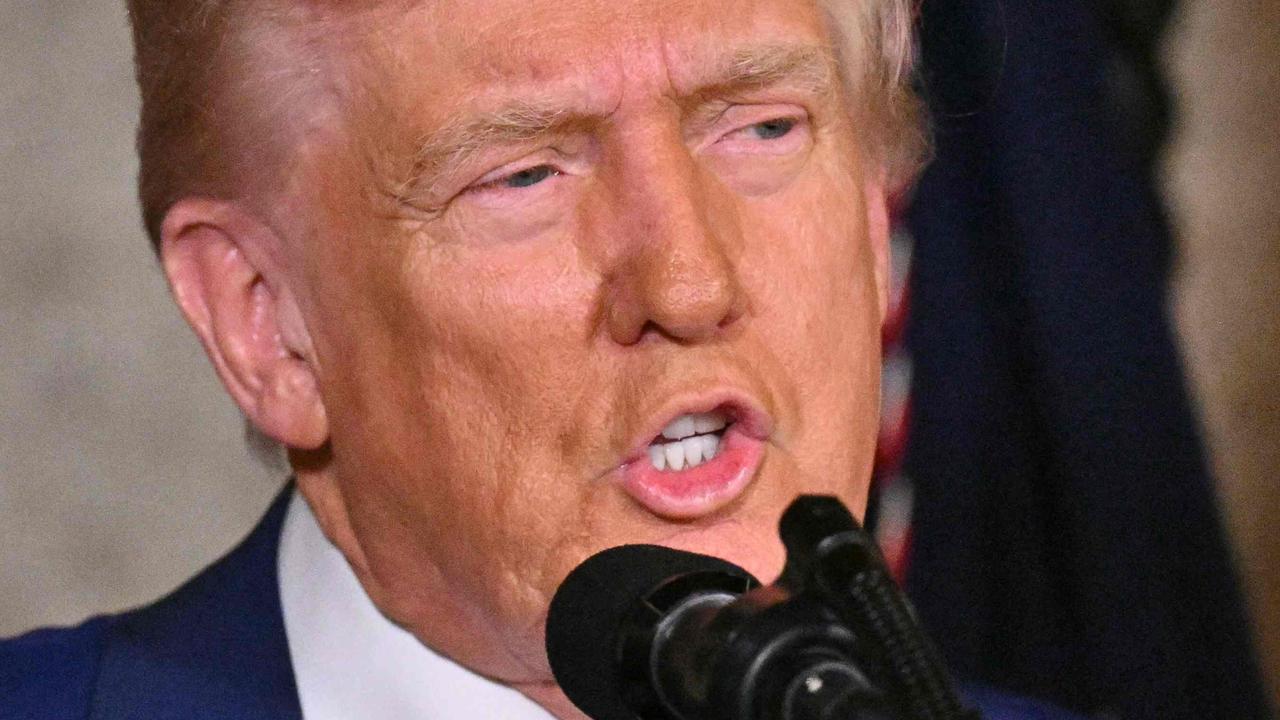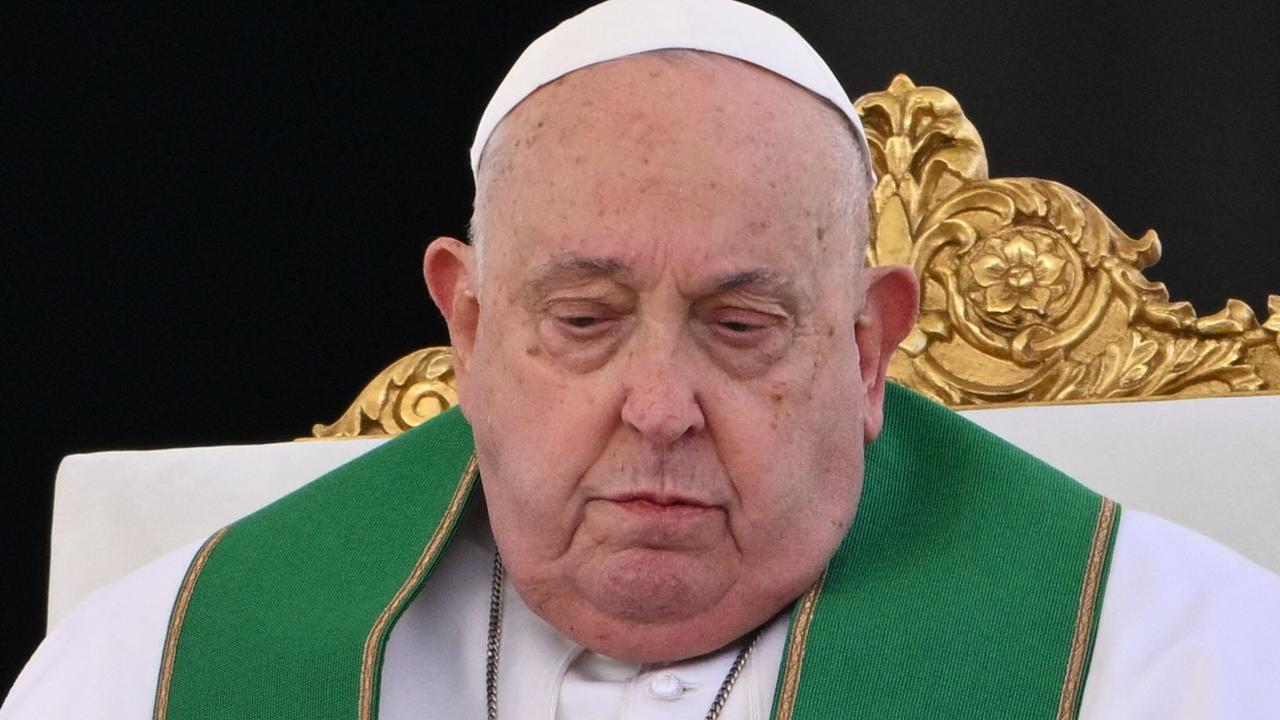Chancellor Angela Merkel calls for compulsory vaccinations in Germany
Another nation in crisis has been forced into a “quasi lockdown” as calls for compulsory vaccination gain traction.
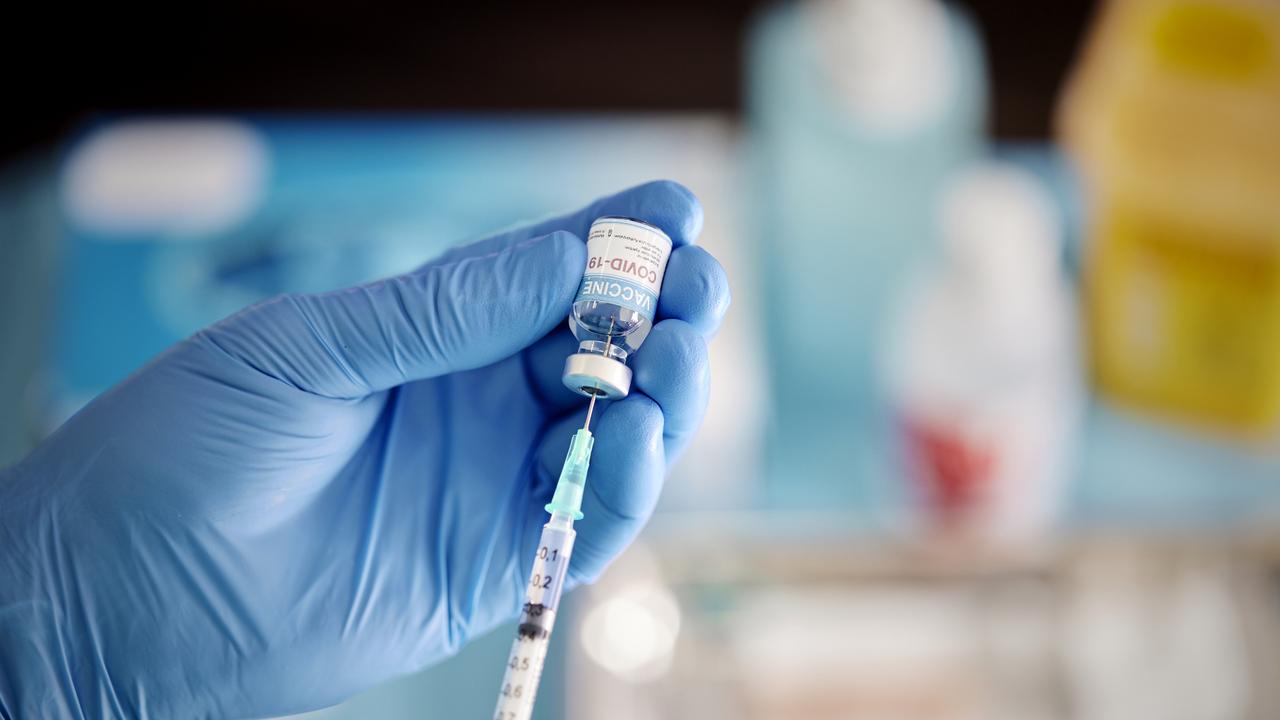
German Chancellor Angela Merkel has declared the nation must make Covid-19 vaccinations compulsory as an “act of solidarity”.
Top health officials recently tabled throwing the country back into lockdown to curb surging infection rates as Europe responds to its most devastating wave yet.
Speaking on a panel to discuss the country’s latest plan to tackle growing case numbers, Ms Merkel backflipped on July comments declaring Germany would not be enforcing the jab on citizens to leverage freedoms.
“There will be no compulsory vaccination,” she said at the time.
But the recent wave of infections throughout Europe has put leaders on high alert. Germany again topped 70,000 cases in a single day on Thursday, in the same week it clocked its 100,000th death to the pandemic.
Hospitalisations around the country have continued to surge, with some patients being forced to travel to different cities for an ICU bed. According to health authorities, the country is currently bracing for a “Code Black” scenario, meaning medics may be forced to choose who lives and dies.
The new restrictions mean only those who are fully vaccinated or recently recovered from Covid will be allowed in restaurants, cinemas, leisure facilities and shopping centres.
Due to the developing nature of the pandemic, it is still unclear what will constitute “fully” vaccinated in a year’s time, as the world comes to grips with the possibility of requiring an ongoing booster regimen in response to new strains.
Stream the latest news on COVID-19 with Flash. Stream more than 20 global & local news sources. New to Flash? Try 14 days free now>
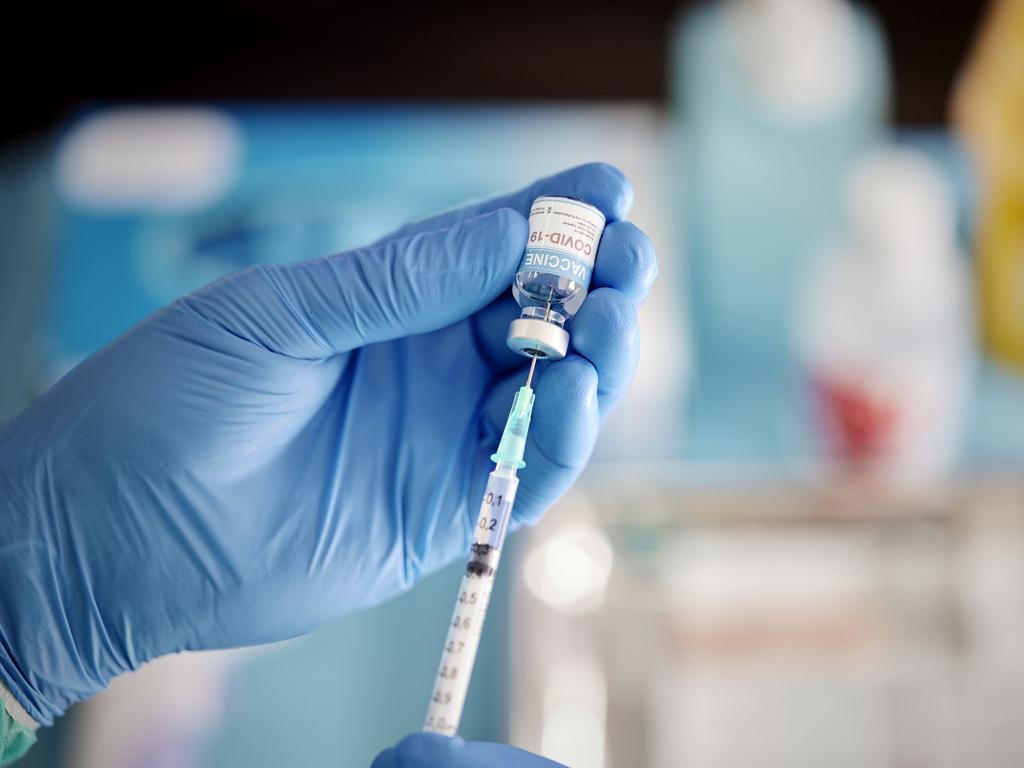
The German Chancellor said parliament would debate the compulsory vaccination proposal with input from the country’s national ethics committee, aiming for new laws to come into effect by February 2022.
According to latest statistics, the country has fully vaccinated 68.9 per cent of its eligible population.
“In light of this situation, I really think it’s necessary to pass such a mandate,” Ms Merkel said.
“The fourth wave must be broken. In view of this, it is necessary to make vaccination compulsory. We all hope it would be better accepted on a voluntary basis.
“We have campaigned on every level for that people to get vaccinated – and yet we still see a gap that means that the vaccinated face restrictions, and has brought the health system to the brink of overload.”
Germany’s Chancellor in waiting Olaf Scholz, who is set to take over as leader next week, agreed with Ms Merkel’s vaccine mandate stance, blaming the country’s relatively low vaccination rate for the situation it has found itself in over the winter.
“If we had a higher vaccination rate, we wouldn’t be discussing this now,” he said.
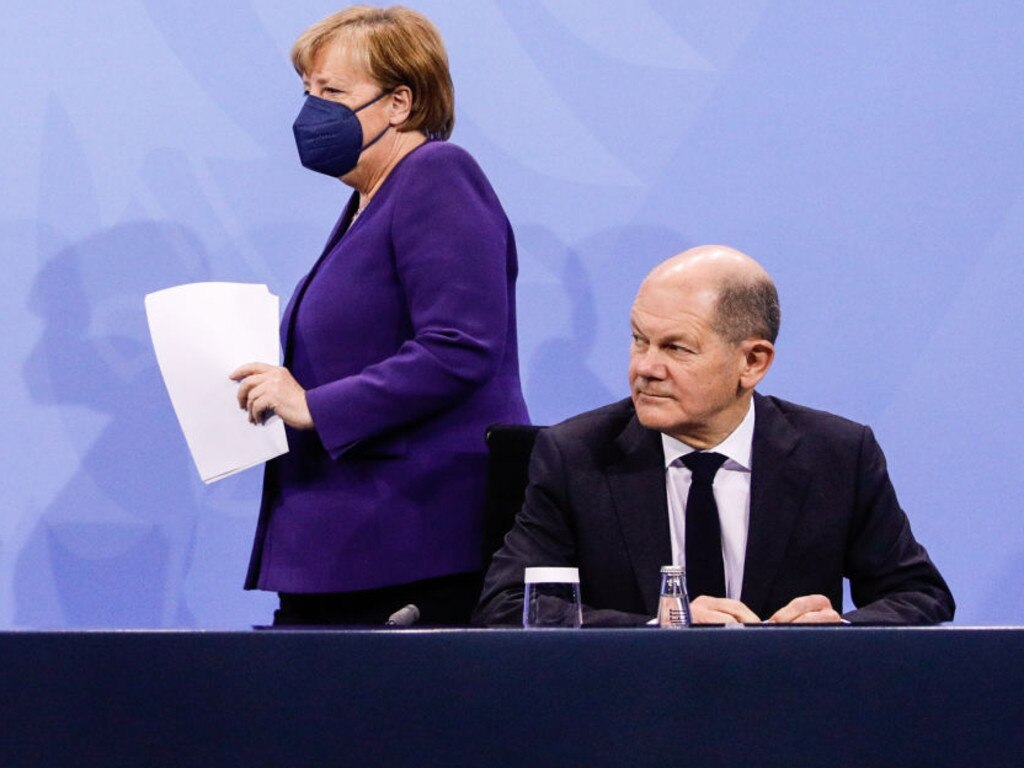
New restrictions in place
Outgoing Health Minister Jens Spahn referred to new restrictions in Germany as a “quasi lockdown”. Under measures agreed on by Germany’s 16 states and federal leaders, unvaccinated civilians will be will be barred from restaurants and cultural venues and non-essential shops.
Citizens will be required to show proof of vaccination to enter venues and while the fully vaccinated will remain largely free of restrictions, nightclubs and bars will be forced to close in the worst-hit locations across Germany.
Clubs will be forced to shut down operations in areas where 350 cases have been recorded per 100,000 people in the past seven days. At the time of writing, the national rate sits at over 400.
Outdoor events will have limited crowds of 15,000, and New Year’s Eve fireworks will be banned.
Germany is also dealing with the newly emerging Omicron strain, which is still being investigated by scientists around the world. Speaking this week, Moderna CEO Stéphane Bancel admitted it is still unknown if the current crop of vaccines will provide adequate protection against the new strain.
According to the EU’s European Centre for Disease Prevention and Control, 79 cases of the new Omicron variant of Covid-19 have been reported in 15 European countries so far.
Professor Lothar Wieler, the head of the Robert Koch Institute, Germany’s federal disease control agency, says the nation is “at a crossroads”.
“We need a massive contact reduction immediately,” he said.
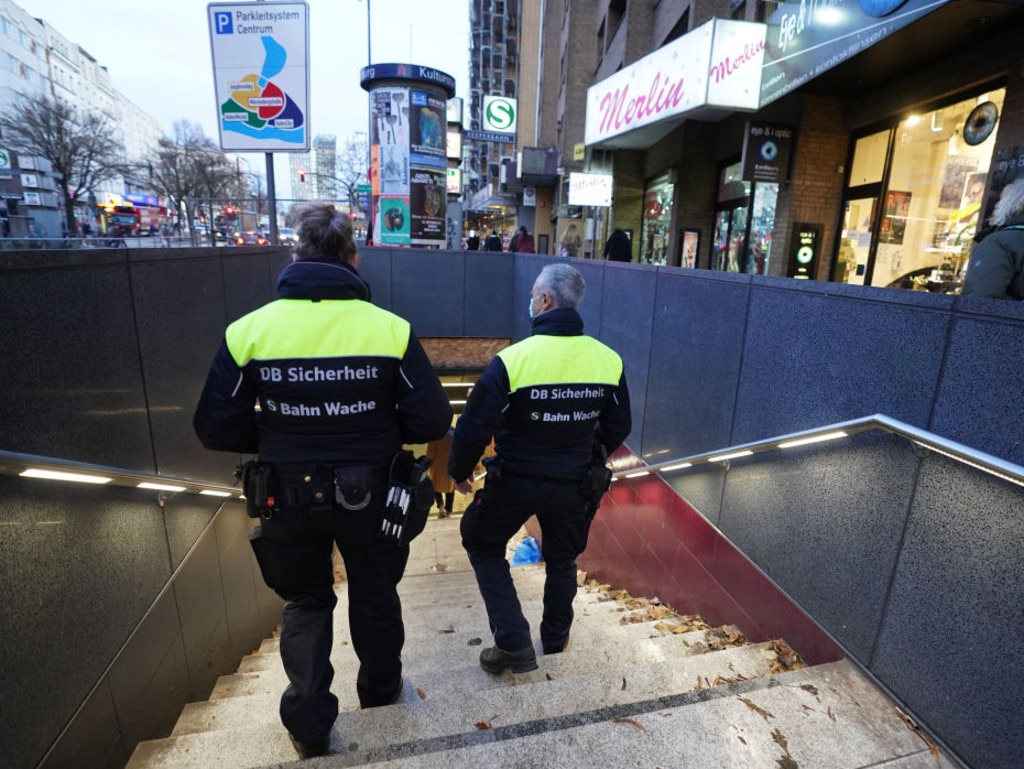
“I expect right now for the decision-makers to trigger all measures in order that we can bring down the incidence rate together.
“We are at a crossroads. We have one choice. Either we choose the road that leads to chaos and to a bad end or the one which unburdens the health system and maybe enables a peaceful Christmas.”
Germany’s response came shortly after neighbouring Austria entered its fourth nationwide lockdown in an effort to contain skyrocketing cases. The new restrictions are expected to ease on December 12 but are subject to review by health officials in the coming days.
Residents are only allowed to leave their homes for essential reasons such as work, exercise and shopping for food.
Austria has one of the lowest vaccination rates in western Europe with just 66 per cent of the population fully vaccinated.





